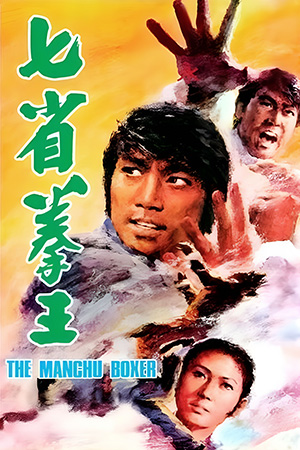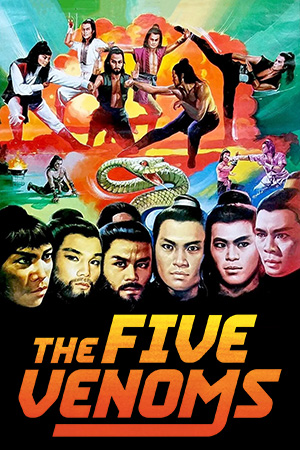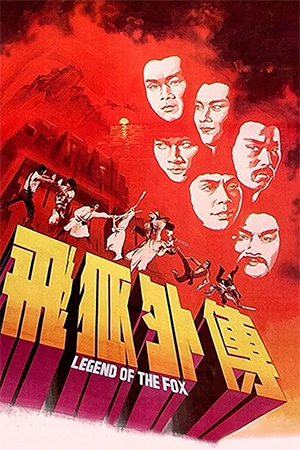Jian (Fu) is a righteous young man who cannot resist stepping in when he sees a crime or injustice occurring. This desire to deliver ‘five knuckle justice’ leads Jian into being expelled from his kung fu school, making a deadly enemy out of the local gang leader (Wang) and annoying the local businessmen – who wish to maintain the town’s status quo. One of his run-ins with the gang boss leads him to being sent to hide out with an unconventional monk and learn the skills of Choi Li Fut kung fu.
After watching this film, audiences in the 1970s cannot have been in any doubt that Fu Sheng was a star. ‘The New Shaolin Boxers’ was his first opportunity to carry a film on his own and he does it brilliantly. Here he delivers everything you would want from the leading man in a kung fu film – he’s handsome, charismatic, endearingly naive and carries himself with enough cocky swagger to give him an ‘edge’. He excels in the film’s many action sequences too, Fu really attacks the fights with conviction and energy. Choi Li Fut is the style of choice in the film, which Fu ably shows at the beginning with a demonstration of some of the forms along with a short history on the style. The Choi Li Fut is only really used at the end of the film after the obligatory training sequences. Chang Cheh adds something a little different to the final bout by intercutting the training scenes with the fight to show how the style is taken from practice to proper use. This technique works really well and manages to stay the cool side of gimmicky.
The story feels fairly slight and it’s a touch episodic but the way the townspeople react to Jian’s ‘heroics’ gives the film a nice twist. They don’t see him as the hero but rather as a nuisance. This makes the audience even more keen to root for him and leads to an interesting Buddhist message at the end.
As mentioned before, Fu Sheng gives an excellent performance and is ably supported by the rest of the cast, most notably by Leung Kar Yan (or maybe it was notable because Leung is one of this reviewer’s favourite actors). He shows more of his range as the snivelling little henchman for Wang Lung Wei who is in fact one of the weaker elements of the film. Wang is terrific in the fight scenes, of course, but lacks any depth to his character and comes off looking quite lightweight when compared to Fu Sheng’s character.
This is a very slight criticism in a splendid, fight packed romp that is a must for any fan of Fu Sheng. In fact, it’s probably a must for any fan of kung fu films.






